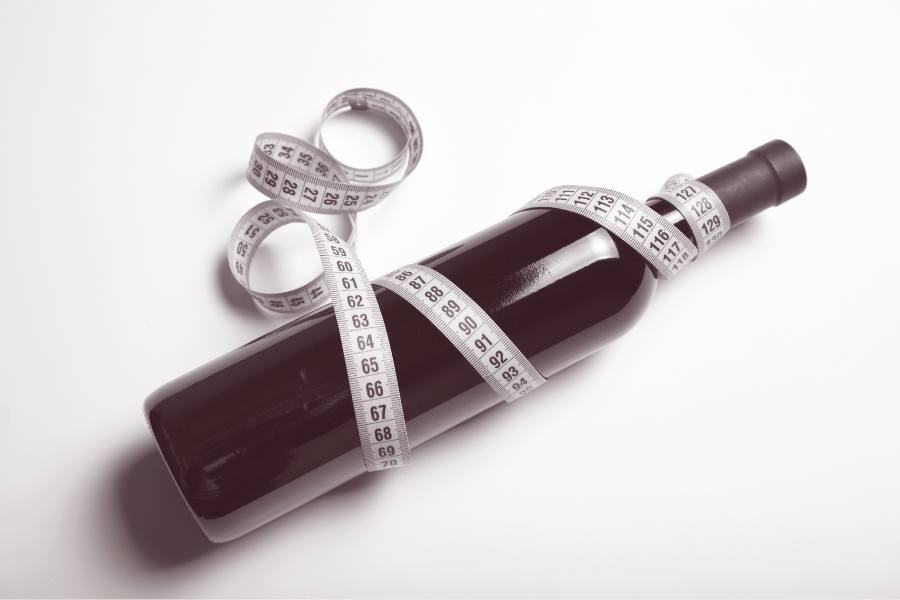Can Recovering Alcoholics Ever Drink Again?
Can You Drink Alcohol Again After a Long Time in Recovery?
One of the most contentious issues among people in the recovery community is the question, “Can recovering alcoholics ever drink again?” This debate stirs significant discussion among people in sobriety, although we feel it is not a particularly complex dialogue. At heart, most of us, in AA or outside the rooms, know that it is not a great idea to pick up that first drink again after a long period of sobriety.
Still, at SOBRLIFE.com, we understand the importance of addressing such questions with compassion and depth, acknowledging that many people in sobriety still ask this one on a regular basis.
After all, would we have been alcoholics in the first place if we didn’t think about drinking once in a while?
But the SOBRLIFE commitment is to support you every step of the way—whether you’re newly sober or many years into it. Through resources, personal stories, and a supportive community, we aim to provide you with the tools you need to maintain and even enhance being sober.
In this spirit, our discussion today is not just about the risks but about understanding the broader implications of choices in recovery.
As we explore this topic, remember that our clothing line, including SOBRLIFE, Hope Fiend, and SoberVerse, is here to offer not just comfort and style but a clear sign of your commitment!
The Nature of the Recovery Process and Drinking Alcohol

Recovery from alcohol abuse (or we are more likely to say, alcohol addiction) is a profoundly personal experience. Alcohol recovery, including the initial detox phase when we quit drinking and overcome withdrawal symptoms, and then have to get out of our comfort zones to seek subsequent support, is not an easy process.
We each deal with the decision to quit drinking alcohol in our own ways, though the common threads in our stories can be helpful, both to keep us sober as well as to help others stop drinking.
Recovery is not a linear process; it involves ups and downs, victories and setbacks. The key is consistency and the willingness to persist even when challenges arise. Central to this process is the development of an understanding of one’s own triggers and the building of strategies to manage them.
For us all, the path has obstacles, whether rocks or boulders, that challenge our commitment to abstain from alcohol. Many of us feel that the support of others serves as a cornerstone of our sobriety.
Can Recovering Alcoholics Ever Drink Again? The Many Risks
The idea of a recovering alcoholic having a casual drink might sound manageable in theory, but it carries significant risks that can jeopardize years of hard-earned sobriety. Physiologically, the body’s tolerance for alcohol decreases after a period of abstinence, which can make any level of drinking potentially more harmful than before, and if it becomes a binge, experiencing withdrawal symptoms that pose serious health risks is another concern.
Psychologically, even a small amount of alcohol can reignite dependency, leading to an ongoing relapse. Additionally, drinking can have detrimental effects on mental health, far beyond what is now technically termed an ‘alcohol use disorder,’ exacerbating existing issues and increasing the likelihood of a mental health crisis for someone in recovery who decides to start drinking.
The consensus among most health professionals and recovery programs is clear: the risks of returning to drinking outweigh the potential benefits. This standpoint is supported by numerous studies indicating that abstinence remains the safest option for those who have battled alcohol addiction.
Let’s be clear here: there is no such thing as truly ‘controlled drinking,’ and a relapse is a serious risk. It can be more challenging to bounce back after each occurrence, deeply affecting both physical health and emotional resilience.
Moderate Drinking vs Total Abstinence

While the vast majority of recovery programs, including 12-step programs like Alcoholics Anonymous, advocate for a strict abstinence-based approach, there are other schools of thought that suggest moderation might be a feasible option for some individuals.
At SOBRLIFE, not shockingly, we advocate for complete sobriety.
Abstinence-based programs argue that the safest and most effective way to maintain recovery is by completely avoiding alcohol. This approach is based on the understanding that alcohol addiction is a chronic condition and that even a small amount of alcohol can trigger a full relapse.
One drink is never just one drink.
Abstinence provides a clear and unambiguous framework that helps individuals like us (who have been known to abuse alcohol) avoid the slippery slope of bargaining with themselves about how much they can safely consume.
On the other hand, Moderation Management and similar programs are gaining attention. These programs suggest that some individuals, particularly those with a less severe alcohol addiction history, might be able to engage in controlled drinking, consuming alcohol in a controlled and moderate manner without relapsing into harmful patterns. This approach often includes setting strict drinking limits and closely monitoring one’s behavior and reactions to alcohol.
Again, it’s really important to note that moderate drinking is not suitable for everyone, and not safe for any people who have a diagnosable alcohol use disorder. The success of such programs in quitting alcohol or cutting down typically depends on several factors, including the severity of the addiction, the length of time the individual has been sober, and their personal and family history.
Many experts caution that even with these considerations, the risk of relapse is significantly higher when any amount of alcohol is reintroduced into the life of someone who has struggled with alcohol abuse in the past.
Evaluating the right approach requires a thorough understanding of one’s personal history with alcohol, honest self-assessment, and often, the guidance of medical and psychological professionals to determine if moderate drinking is a viable option.
If in doubt (at all) err on the side of caution: don’t start drinking alcohol again.
It’s always easier to start drinking than to stop drinking, at least in our experience.
The Role of Supportive Communities and Powerful Symbols in Alcohol Recovery
At least for many of us in recovery, supportive communities and visible symbols of commitment play indispensable roles in the choice to remain sober. These communities and symbols, from sobriety tattoos to sober slogans, remind us daily of the collective strength we share with others on the same path.
Supportive communities, such as AA and NA recovery groups, SMART Recovery, Dharma Recovery, and others, therapy sessions, and online forums – all offer a platform for sharing experiences, challenges, and successes. The strength gained from knowing you are not alone in your struggles is invaluable.
Symbols of commitment, like the clothing from SOBRLIFE, Hope Fiend, and SoberVerse, serve as powerful, personal reminders of an individual’s dedication to sobriety. Wearing these items can also be a form of silent solidarity, connecting wearers with a broader community who recognize the significance.
These symbols often go beyond mere personal reminders; they spark conversations, promote awareness about recovery, and can even offer encouragement to those who are curious or struggling with their own issues related to substance use.
Our 7 Proven Ways of Coping With the Urge to Drink
It is not natural for an alcoholic to stop drinking. After all, alcoholics drink, by definition. Finding lasting success in recovery from an alcohol use disorder involves developing robust strategies.
Here are the details on six effective coping mechanisms that individuals in recovery can adopt to strengthen their resilience against these challenges:
1) Practicing Mindfulness and Daily Meditation

Integrating mindfulness into daily routines can significantly help manage cravings. Practices such as guided meditations, mindfulness-based stress reduction (MBSR), and breathing exercises help focus the mind and alleviate stress.
Apps like “Headspace” or “Calm” all have free versions and both provide structured meditation sessions that can be easily followed from home or during breaks at work. It is worth noting that UCLA offers a pretty good meditation app that is completely free as well!
2) Physical Activity and Exercise Routines
Regular physical exercise not only boosts overall health but is also a powerful tool in reducing anxiety and improving mood. Establishing a routine that includes cardiovascular exercises like running or cycling, strength training, or group fitness classes can provide a natural endorphin rush.
3) Starting New Hobbies and Finding New Creative Outlets
Engaging in hobbies that require concentration and creativity can offer therapeutic benefits and a sense of fulfillment. Activities such as knitting, gardening, or cooking allow for productive focus and relaxation.
The creative arts, like painting, writing poetry, or playing a musical instrument, all serve as emotional outlets and can help express feelings that might otherwise trigger a relapse.
4) Joining Support Groups and Pursuing Therapy
The evidence is clear: consistent participation in support groups like Alcoholics Anonymous (AA) or SMART Recovery provides a network of peers who understand the struggle.
Similarly, seeking regular therapy with professionals specializing in addiction can help address underlying issues and develop personalized strategies to cope with cravings. For many with long-term sobriety success, these resources are a part of their everyday lives.
5) Developing a Social Support Network

With benefits similar to those of support groups, creating a circle of supportive friends and family is crucial. This might involve joining new clubs or online communities that focus on sobriety, volunteering, participating in local events, or even advocating for the sobriety movement.
6) Solidify Your Sober Routines
Designing a daily schedule that leaves little room for idle time can make recovery a lot easier. This includes setting specific times for meals, work, exercise, and leisure, ensuring a balanced lifestyle.
7) Write it All Down
Keeping a daily journal (it can be as little as a sentence or two a day) can help track progress and let you reflect on the emotional events of each day, providing insights into what triggers cravings and how best to manage them.
SOBRLIFE: Standing With You in Staying Sober!
At SOBRLIFE.com, we stand with you in your journey toward sustainable sobriety. Remember, recovery is not just about avoiding alcohol. Being sober is about building a richer, more fulfilling life free from booze!
We encourage you to wear your commitment proudly—whether through our SOBRLIFE apparel or by engaging with recovery communities (or both!) Continue to seek out activities and relationships that reinforce your new sober lifestyle, and never hesitate to reach out for help when the path seems daunting.
Thank you for trusting us to help support your sobriety, and continue to visit us regularly for more resources, support, and inspiration!
